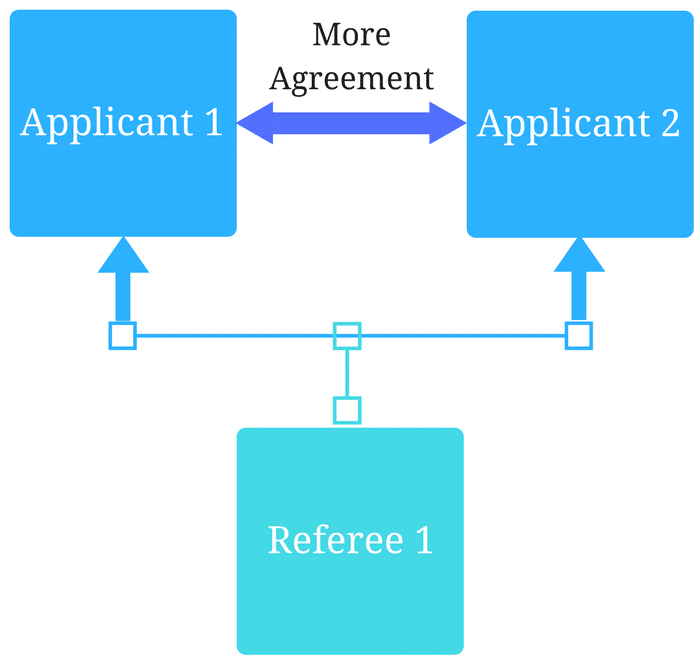Uncovering Grit in Holistic Admissions

May 30, 2024
Think about a student who never gives up, no matter what challenges they face. This quality, called grit, is the hidden strength that often leads to success beyond what grades and test scores can predict. Grit might seem like a buzzword, but it has a very meaningful impact. It means being resilient, determined, and able to overcome obstacles.
By looking for grit in higher education admissions, schools can find students who are not just academically adept, but also equipped to excel in their future careers. Focusing on grit in admissions helps institutions select applicants who bring unique perspectives and a strong drive to their studies.
This week on the Holistic Success Show, we are honoured to welcome Dr. Mike Roscoe, Associate Professor of Clinical Family Medicine at the Indiana University of Medicine. Dr. Roscoe is an experienced physician assistant educator and clinician who has worked in emergency medicine for over 20 years. He also has experience with military medicine and has two combat tours under his belt, meaning he knows a thing or two about grit!
What is holistic admissions?
Holistic admissions involve evaluating an applicant’s entire profile rather than focusing solely on academic metrics like GPA and test scores. This approach ensures the admissions process aligns with the institution’s mission and core values.
In holistic admissions, it’s essential to look at the broader aspects of an applicant’s background. This means considering their personal experiences, character traits, and how these align with the program values. By doing this, admissions committees can identify candidates who are not only academically capable but also a good fit for the program’s culture and goals.
Why is grit important in holistic admissions?
Grit is a key factor in predicting a student’s success. While academic or knowledge-based traits like grades and test scores are important, non-academic traits such as communication, empathy, and resilience are often more indicative of long-term success. In fact, according to Deloitte Insights, 92% of companies surveyed reported that human capabilities or soft skills matter as much or more than “hard skills” in today’s business world. These traits are critical in professional practice and can significantly impact a student’s ability to thrive in their chosen field.
Research has shown that perseverance and passion for long-term goals, which are core components of grit, are significant predictors of success. Focusing solely on traditional academic metrics might mean an institution misses the potential of students who have overcome significant challenges. Therefore, incorporating non-academic traits into the admissions process will help to identify students who bring valuable perspectives and determination to their studies and future careers.
How can grit be assessed in admissions?
Assessing grit involves looking at the whole person and their experiences, not just their academic achievements. This means understanding the unique culture of the program and identifying traits that align with it. Indicators such as work experience, community service, and leadership roles are valuable markers of grit. Students who take on challenging paths often demonstrate significant resilience and time management skills.
Consideration of life circumstances, such as whether applicants worked full-time jobs, are parents, or participated in sports while maintaining their studies, is also crucial. These factors reveal individuals who have shown they can manage their time effectively and overcome adversity. Qualitative data, such as letters of recommendation, can provide deeper insights into an applicant’s character and resilience, especially when they highlight non-academic traits and personal growth.
How can programs foster grit in students?
Once students are admitted, it’s essential to continue developing their grit and other non-academic traits. Effective strategies include using formative assessments and providing opportunities for students to grow through real-life experiences. Treating these traits with the same importance as knowledge-based traits means offering support and mentorship to help students develop these skills over time.
Creating a supportive environment where students feel encouraged to develop their skills is also crucial. This involves shifting from punitive measures to formative feedback, which helps students learn and improve. By focusing on growth and continuous improvement, programs can help students build the skills they need to succeed both academically and professionally.
Integrating non-academic trait development into the curriculum ensures that students are continually working on these critical skills throughout their education. This approach not only helps students succeed but also fosters a sense of community and shared purpose within the program.
Key Takeaway
Incorporating grit into holistic admissions and fostering it within programs can lead to the selection and development of resilient, empathetic, and successful professionals. Dr. Roscoe’s insights underscore the importance of looking beyond traditional metrics and considering the whole individual. By aligning admissions practices with institutional values and focusing on non-academic traits, we can create a more open and effective approach to education. Understanding and fostering grit will be crucial to the success of both students and educational institutions.
Watch the full Holistic Success Show episode with Dr. Roscoe now!
Related Articles

How interviews could be misleading your admissions...
Most schools consider the interview an important portion of their admissions process, hence a considerable…
Reference letters in academic admissions: useful o...
Because of the lack of innovation, there are often few opportunities to examine current legacy…
